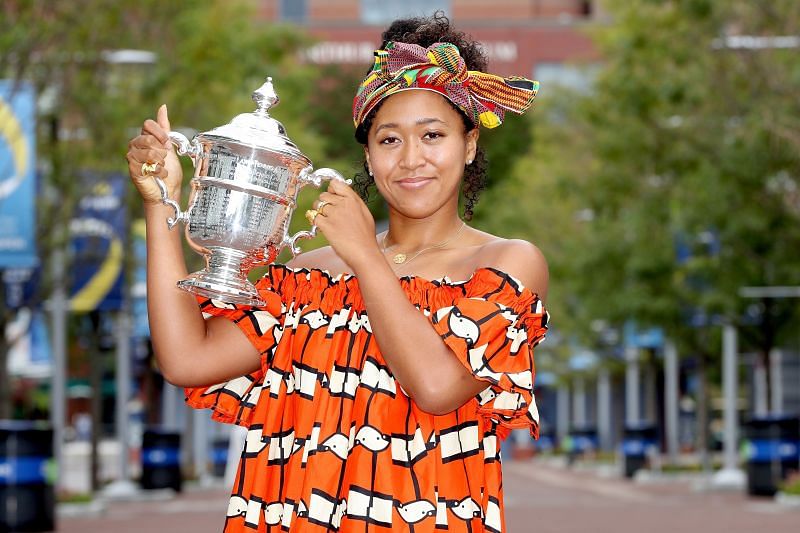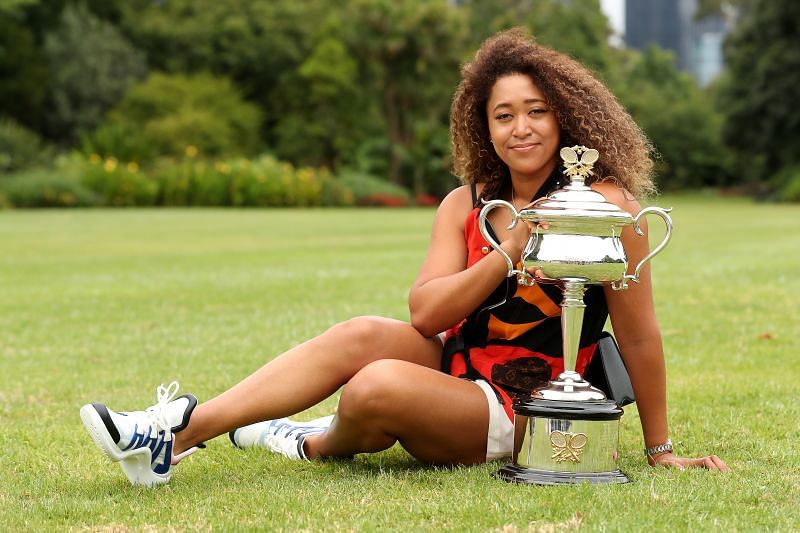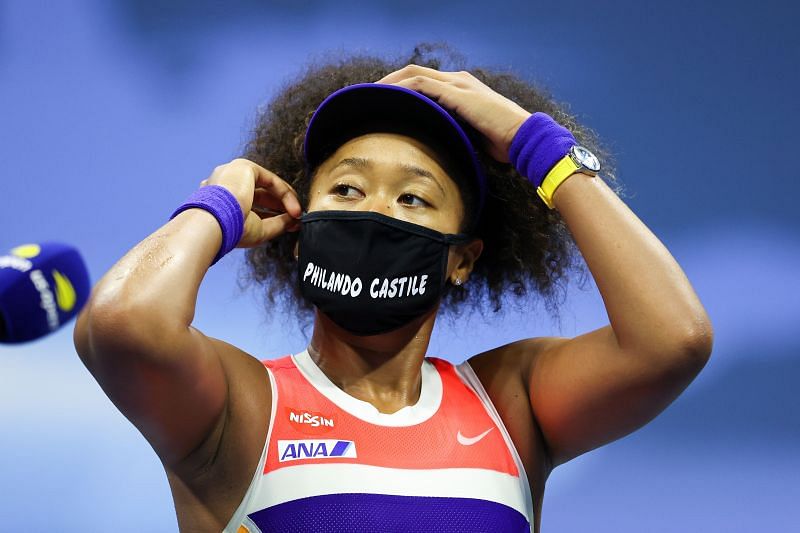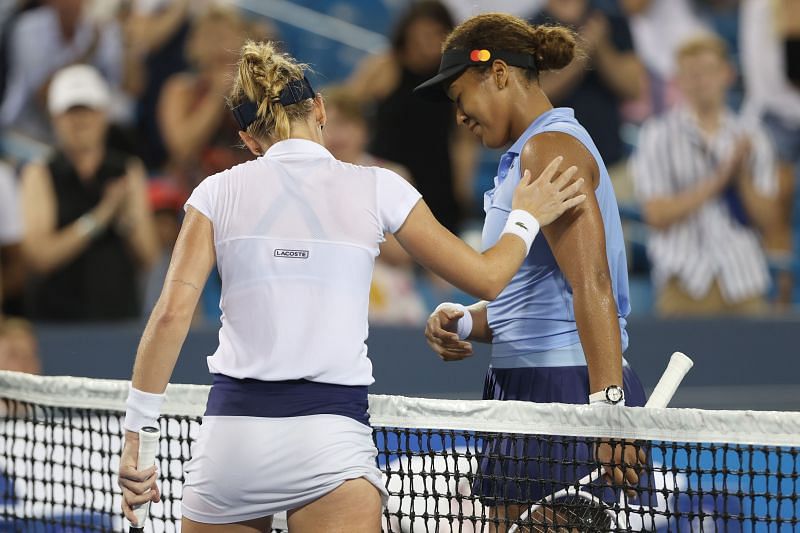
Will Naomi Osaka's stranglehold over hardcourt Slams come to an end this US Open?

Back at the 2018 US Open, a then 20-year-old Naomi Osaka upset 23-time Grand Slam champion Serena Williams to win the trophy and mark her arrival. Since then, Osaka has well and truly established herself as the leader of the next generation.
The Japanese has added three more Majors to her name - the 2019 Australian Open, 2020 US Open and 2021 Australian Open. In fact, she is just the third player in the Open Era after Roger Federer and Monica Seles to win her first four Slam finals.
As can be seen in the names of the titles she has won though, Naomi Osaka's hardcourt dominance has been particularly striking. She has won four of the last six hardcourt Majors, and out of her two losses, one US Open 2019) was partly due to injury.
Naomi Osaka - A player with no equal on hardcourts

Naomi Osaka's stranglehold over hardcourt Slams has been extraordinary, to say the least. Out of her 58 match wins at the Majors so far, 47 have come on hardcourt.
It almost seems like the 23-year-old can do no wrong when it comes to playing at the Australian Open and the US Open. Her power, poise, mental fortitude, resilience and self-belief have made her look practically impenetrable on the surface, and have even drawn comparisons with none other than Serena Williams.
At the last two hardcourt Slams, Osaka has shown that she can win no matter what the circumstances. When the chips are down, she knows how to regroup. Even when the opponent looks unbeatable, she finds a way to win.
Naomi Osaka's problem-solving skills set her apart from the field, something that Victoria Azarenka learned the hard way in the 2020 US Open final. Azarenka seemed to be in full control of the proceedings for half of the match, sprinting to a 6-1, 2-0 lead even as Osaka looked increasingly erratic and listless.
But the youngster was able to find her steely focus and pinpoint accuracy just in the nick of time. She went on to complete a 1-6, 6-3, 6-3 win and hand the Belarusian her third career US Open final defeat.
"I just thought it would be very embarrassing to lose this in under an hour so I just have to try as hard as I can and stop having a really bad attitude," Osaka said after the match.
Trying hard has always been her motto; Osaka never likes to give up. At the very next Slam she was again pushed to the brink, but once again she came out with flying colors.
Two-time Slam winner Garbine Muguruza had two match points to send the Japanese out of the 2021 Australian Open. But Osaka survived the titanic fourth-round tussle to emerge victorious 4-6, 6-4, 7-5.
Naomi Osaka remains unfazed by every challenge that comes her way. She just knows how to rise above it all.

Even off the court, the World No. 3 has been an icon and an inspiration. Born to a Haitian father and a Japanese mother, the bi-racial Osaka has never shied away from lending her voice to issues that matter.
In perhaps the most memorable of those instances, Osaka used the 2020 US Open as a platform to raise awareness about the Black Lives Matter movement and to honor the victims of police brutality. It was hardly a surprise that she was celebrated for her gesture all across the world.
Naomi Osaka has been a goddess that everyone admires but can never aspire to be. She's been strong and infallible for most of the last three years. But now, a few cracks are beginning to appear in her visage.
Osaka opened up about her struggles with mental health during this year's Roland Garros, and things haven't been the same since then. But few could have anticipated her downturn in form when she first brought the issue to light.
When the Japanese refused to attend press conferences in Paris and subsequently withdrew from the tournament altogether, her gesture was widely appreciated, as it showed that even the world's best athletes are just like everybody else. It showed that sporting superstars have their own share of struggles, and are much more than just winning machines.
Osaka's admission, in fact, helped open up discussions on a very important issue that is often neglected.
"I hope I was able to help some people and for them to see that even athletes are still humans like the rest of us," Osaka recently told Women's Health Magazine. "And we all are dealing with something in our lives."
Change in attitude and philosophy for Naomi Osaka
The Japanese subsequently took a two-month break from the tour to heal, which saw her miss Wimbledon too. The layoff helped her introspect on her life as a tennis player and beyond.
The introverted Naomi Osaka is learning to free herself from the battle she has been fighting internally. She is embracing all the aspects that make her unique, including her shyness and quietness.
When Osaka returned to competition at the Tokyo Olympics, she seemed wiser and more mature. Perhaps most strikingly though, she wasn't afraid to face the media anymore.
But on the court, the former World No. 1 suffered an inexplicable collapse against Marketa Vondrousova in the third round. The gold medal favorite never found her game and made a heap of errors to crash out of her home Olympics with a 1-6, 4-6 loss.
That did send shockwaves through the tennis community, but Osaka was seemingly not bothered by any of it. She has found a new philosophy in life and her focus has shifted, which she highlighted after her three-set comeback win over Coco Gauff in the Cincinnati second round last week.
"The choice to go out there and play, to go see fans, that people come out and watch me play, that itself is an accomplishment," Osaka told the media. "I'm not sure when along the way I started desensitizing that. It started not being an accomplishment for me, so I felt like I was very ungrateful on that fact."
Osaka, who donated her Cincinnati prize money to the earthquake relief efforts in Haiti, lost her very next match at the tournament.

She peppered the court with as many as 41 unforced errors while striking only 17 winners in her third-round match against World No. 76 Jil Teichman. The Swiss was able to make inroads into Osaka's famous serve six times to complete a 3-6, 6-3, 6-3 win.
The result caused Osaka to slip down to No. 3 in the WTA rankings. And for the first time in three years, she is not looking like the best hardcourt player in the world.
Ashleigh Barty a bigger favorite than Naomi Osaka for the 2021 US Open
The disappointing Cincinnati campaign right before the defense of her US Open title would be a big concern for Naomi Osaka and her team. With World No. 1 Ashleigh Barty winning her fifth title of the season at Cincinnati and Wimbledon runner-up Karolina Pliskova looking equally dangerous, the Japanese won't be the title favorite at a hardcourt Slam for the first time in a while.
Osaka has always been a rhythm player, and even during a match she often takes some time to get into her groove. But her mental health and media battles over the last few months have deprived her of the chance to get into match-winning shape.
The stop-start play that Osaka has patented over the last couple of years doesn't quite work when the gaps are so long and the wins dry up. The 23-year-old has played just 12 matches since the Australian Open, and it doesn't seem like she'll has enough practice to put up a title run at the US Open.
But even if she ends up losing early in New York this year, Osaka will be fine. Hitting a fuzzy yellow ball might be her first job, but she identifies herself as more than just that.
"Now more than ever I see that you can be more than just one thing…More than just someone who plays tennis," Osaka told Women's Health Magazine.
There's a life beyond winning and seeing yourself at the very top; Osaka wants to explore more of that and discover herself in the process. She might not have a trophy to flaunt at the end of the day, but the feeling of helping others could be just as rewarding.
Naomi Osaka is a true champion no matter what she does, and a loss at the US Open won't change that.